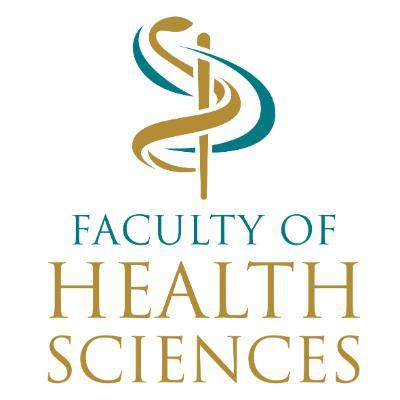PRICELESS SA Fiscal Policies Report Released
- L. Rautenbach
Priceless SA have released a new report entitled “Fiscal Policies for Population Health in South Africa”.
Priceless SA has released a new report entitled “Fiscal Policies for Population Health in South Africa”, finding that policy-makers should consider fiscal interventions that target public health concerns. The report also shows that there is strong evidence for certain fiscal measures, including taxes and subsidies, to address health impacts and improve public health.
Professor Karen Hofman, director of Priceless SA, a co-chair of the secretariat that investigated various fiscal tools said that fiscal policies are powerful but often overlooked tools for improving population health and health equity. “It is not a new strategy to use fiscal tools, but this report suggests that they could be used to much greater effect by saving lives, cutting costs, raising revenue and preventing a great deal of illness, and will help to contain the ballooning costs of health care and social grants.”
The report focuses on fiscal interventions that not only improve health outcomes but also have the remarkable potential to improve both public health and fiscal wellbeing, helping to alleviate the added fiscal burden of the impending National Health Insurance (NHI) programme.
Priceless SA reviewed a set of potential fiscal policy instruments that could tackle South Africa’s disease burden. The available tools considered include excise taxes, subsidies and income transfers. Taxes, such as those on alcohol and tobacco, present the opportunity to reduce the occurrence of behaviours responsible for lifestyle and non-communicable diseases. Other interventions considered include subsidies to reduce the economic burden of transportation on pregnant women and incentives for chronic disease treatment adherence.
Initial analyses of a selection of excise taxes studied in the report would, by themselves, reduce lives lost by hundreds of thousands over the next 30 years. The preliminary evidence that fiscal measures – including taxes and subsidies – can improve health in the short term without relying either on additional budgetary allocations to Ministries of Health or on public health systems to work more efficiently as well as raise revenue, was also reported.
“These fiscal measures could thus help to reduce inequalities in health and contribute to progress towards meeting numerous Sustainable Development Goal (SDG) targets, including a reduction in premature mortality from NCDs, strengthen implementation of World Health Organisation recommendations on tobacco control and achieve universal health coverage,” Hofman adds.
Co-chairs of the panel, Kate O’Regan, a prior judge of the Constitutional Court of South Africa and Leila Patel, Professor and Director of Centre for Social Development in Africa, University of Johannesburg, believe the report will make major contribution to the health and fiscal policy debates as to how best the vision may be achieved for improving the quality of life for all South Africans.
More about the Fiscal Policies for Population Health in South Africa Report
The Inquiry on Fiscal Policies for Health is an exploratory consultative research project to explore the potential uses of fiscal policy tools and interventions, ie taxes, to address and prevent disease and reduce the health burden in South Africa. Guided by an advisory expert panel drawn from academia, government and the private sector, the analysis and research for this report were conducted by a secretariat based at the University of Witwatersrand School of Public Health, with a parallel process led by Indian counterparts through the Center for Disease Dynamics, Economics & Policy. Having a strong partner in the global South was valuable. South Africa and India are both middle-income countries embarking on universal health coverage, yet with limited fiscal space to raise additional revenue; similarly, each faces significant health challenges from industry-driven consumption of tobacco, alcohol and sugary beverages.
PRICELESS SECRETARIAT, UNIVERSITY OF WITWATERSRAND SCHOOL OF PUBLIC HEALTH
- Karen Hofman, Professor and Director of PRICELESS SA
- Aviva Tugendhaft, Deputy-Director
- Nicholas Stacey, Health Economist
- Aarika Sing, Administrator
- Barry Brooke-Norris, Project Manager
ADVISORS TO SECRETARIAT
- Ramanan Laxminarayan, Director of the Center for Disease Dynamics, Economics & Policy, Washington, D.C.
- Evan Blecher, Health Economist, Health Economics Unit, University of Cape Town
- Corné van Walbeek, Professor in Economics and Principal Investigator of the Economics of Tobacco Control Project, University of Cape Town
- Stephen Tollman, Professor of Public Health and Director of MRC/WITS Rural Public Health and Health Transitions Research Unit, Agincourt, South Africa
EXPERT PANEL CHAIRS
- Kate O’Regan, Prior Judge, Constitutional Court of South Africa
- Leila Patel, Professor and Director of Centre for Social Development in Africa, University of Johannesburg
PANEL
- Iain Barton, MD Imperial Health Sciences
- Mark Blecher, Chief Director for Health and Social Development - Treasury, South Africa
- Shai’sta Goga, Economist and Senior Researcher, Centre for Competition, Regulation and Economic Development SA
- Alex van den Heever, Professor, Wits School of Governance
- Trudi Makhaya, Independent economist, strategist and journalist
- Elias Masilela, Executive Chairman, DNA Economics, Member NPC
- Thulani Masilela, Outcomes facilitator: Health, Presidency, South Africa
- Mary Metcalfe, Professor, Wits School of Governance, Prior MEC Education
- Mark Orkin, Consultant in Public Sector Management, Prior CEO HSRC
- Wessel Pienaar, Professor in the Department of Logistics - Transport, Stellenbosch University
- Yussuf Saloojee, Executive Director of the National Council Against Smoking
- Ingrid Woolard, Dean of the Faculty of Commerce, Professor in the School of Economics, UCT

